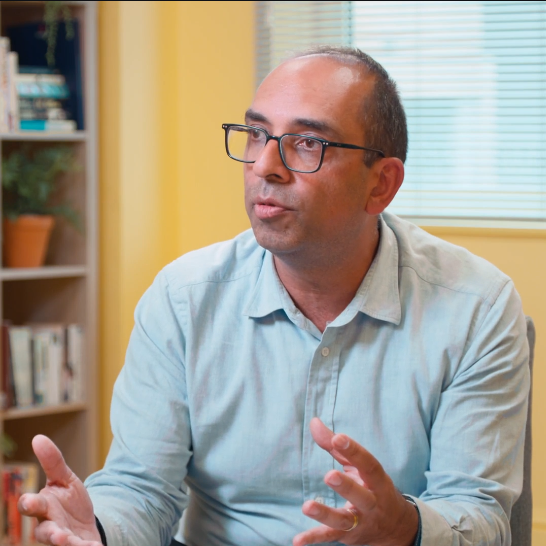Video: What is "climate-friendly" or "climate-focused" investing?
We often talk about the climate-focused investment options we offer at OneFamily.
Customers who open a Lifetime ISA or Stocks and Shares ISA with us have the option of investing in a fund that selects company shares based partly on their climate credentials.
Our fund managers, State Street Global Advisors (SSGA), look at things like how much carbon the companies produce and how ready they are for climate change.
But as proud as we are of this climate focus, we never want to mislead our customers about the benefits of this type of investing.
So we've taken your questions to SSGA to find out more about how shares are chosen and the criteria the team uses.
Customer Experience and Quality Assurance Manager, Helen Kimber, met with Altaf Kassam, an Investment Strategist at SSGA, to share with him some of the questions our customers tend to ask about sustainable investing.
Altaf explained how a SSGA algorithm selects which companies to avoid when choosing where to invest your money. He told Helen about how investment choices can contribute to tackling the climate emergency and addressed concerns that this type of investing could be less profitable.
Please note, the value of your investments can go down as well as up, so there is a chance that you could get back less than you've paid in. Neither OneFamily nor State Street Global Advisors is able to tell you what you should do with your money, if you're not sure please speak to someone who can advise you.
Let's talk about investing with a focus on the climate
Anything you weren't clear on?
Climate transition
Climate transition is the process of reducing the damage being done to the environment, generally by reducing the rate of global warming.
Many companies have “climate transition plans”, which show how they intend to reduce their carbon emissions and by when.
Emissions
Altaf explains that companies produce “emissions”. In this context, he’s referring to carbon dioxide equivalent emissions, often written as CO2e. This is how much carbon a company releases into the atmosphere while going about its business.
These emissions contribute to global warming and climate change, so we want to limit them as much as possible.
Green revenue
Green revenue is money a company makes through activities that benefit the environment. For example, developing technology that reduces our need to use fossil fuels would be classed as a green activity.
Fossil fuel revenue/Fossil fuel reserves
Fossil fuel revenue, on the other hand, is money made using fossil fuels, for example burning fossil fuels in order to power production.
Fossil fuel reserves are the amount of fossil fuel that a company owns, even if these reserves are yet to be extracted.
Risk
When we talk about "risk" in investing, we mean the risk of your investment going down in value or not growing by as much as inflation.
It doesn't mean that you could end up owing money, but there is always a risk with investing that you could get back less than you've paid in.
Screening factors
These are simply reasons to not invest in a company. One of the examples Altaf gives of a screening factor is arctic drilling – SSGA doesn’t invest money in our climate-focused fund, Global Equity, in companies that undertake drilling in the arctic.
Altaf mentions five screening factors, but SSGA use seven in total: controversial weapons, UN Global Compact violators, severe ESG controversies, Swedish Ethical Council, thermal coal, Arctic drilling and oil sands.
Want to know more about how OneFamily invests with a focus on the climate? Read more about the criteria that Altaf mentioned on our 'How we invest for a brighter future' page.

Hear more from Helen and Altaf
You may also be interested in:
How does the annual ISA allowance work?
Individual savings accounts (ISAs) allow UK residents to invest or save their money without paying tax on any money they make.
Is it better to save or invest your money?
Investing is generally riskier than putting your money in a savings account, but it also means there's potential for your money to grow more.
What to do if your stocks and shares ISA is losing value
Turbulent markets can affect the value of your stocks and shares investment, but the worst thing you can do is panic.
Investing for beginners
At OneFamily, we believe everyone should have the same access to different ways to grow their money as everyone else.
